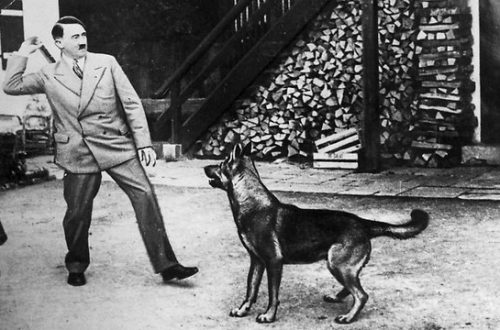In the comments to this post by Eric at the Drinksoaked Trots for War, Jeffrey Ketland suggests a Harry’s Place post about “the ethics” of using the term “Islamofascism”. Jeffrey says that “there is certainly a similarity between Militant Islamism and fascism, but pinning it down is complicated; and the word at least suggests a blanket attack on Muslims, and for that reason, I think should be avoided”.
It so happens that there’s an article in the Sunday Times today, by “religious historian Michael Burleigh”, about just that. It’s titled “Islamofascists: a dangerous label”, and argues that Islamists should be viewed on their own terms rather than through the prism of 20th century Western political ideology, but also sets out the similarities between militant Islamism and fascism:
“Fascism” enables the (Bush) administration to give a familiar face to a shapeless enemy; it makes Al-Qaeda comprehensible on our terms by slipping a metaphorical Nazi steel helmet over the keffiyehs and balaclavas of the terrorists. It is not hard to find direct links beyond the enthusiastic credulity of their respective adherents towards charismatic charlatans. There are also direct influences. One of Hitler’s greatest admirers was Grand Mufti Haj Muhammed Amin al-Husseini, an uncle of Yasser Arafat, who spent the war in Berlin urging the Führer to exterminate Jewish people.
Nothing much separates the horror that modern Islamists express towards western urban industrial society and the cultural pessimism that was pervasive on the European right in the late 19th century — the toxic pool from which fascism emerged in the aftermath of the great war. Most European fascist movements were products of visceral national grievance; a colossal sense of collective victimhood at the hands of the Israeli David or the western Goliath is also a key motivating force behind radical Islam.
Interwar fascists believed in the purifying efficacy of political violence, glorified death and destruction and were contemptuous of liberal democracy and the rule of law. Radical Islamists may detest democracy for different reasons — as a form of blasphemy against Allah’s will rather than what elite fascists regarded as the politics of the mindless herd — but they share a similar nihilistic pleasure in chaos and destruction.
Like fascists and communists, they are psychologically captive to one big idea and are equally willing to kill, or to die, for it. Their big idea is that Muslims should be on top rather than so manifestly powerless vis-à-vis the western world. Fascists believed in a politics of fall from a heavily mythologised paradisiacal past, casting themselves as the light that will dispel the darkness. “Germany awakes” is paralleled by the “blessed awakening” of all Muslims that tantalises Osama Bin Laden.
Like radical Islamists, fascists were fascinated by modern technology, albeit tank and tractor factories rather than satellite phones, but the visions of greatness that animated them lay in the remote past: ancient Rome in the case of Mussolini, or the medieval Reich which Hitler promised to restore a third time, although he was also fascinated by prehistoric Aryans. Al-Qaeda is similarly driven by a desire to recreate a caliphate that existed 1,300 years ago.
I wouldn’t particularly disagree with any of this – nor with Christopher Hitchens’s article from September 20th 2001 in which he first coined the term “fascism with an Islamic face” – but I’d still baulk at using the word “Islamofascist” to describe the likes of Al Qaeda, Abu Musab Al-Zarqawi, or closer to home, Anjem Choudhary or Abu Izzadeen. For one thing, I prefer Mussolini to these nihilists. There’s a perfectly gorgeous art deco power station in Riva on the northern shore of Lake Garda for which the locals have Mussolini to thank, as likewise they do for the tunnels built into the surrounding mountains that enable one to drive round the lake. None of this, of course, is to suggest that Mussolini’s fascism was a good thing, but there is at least the odd tangible bit of evidence that its legacy wasn’t entirely negative, that it wasn’t only about destruction and violence. If Wikipedia is to be believed, then in 1996 Taliban forces sacked the offices of the Afghanistan Meteorological Authority because weather forecasting was considered to be sorcery. Making the trains run on time, it seems to me, is preferable to blowing up the trains.
But regardless of the actual accuracy of comparing fascism with the ideology of the Taliban, “islamofascism” is still a term I’d avoid using. As Jeffrey Ketland says, “it suggests a blanket attack on Muslims”, and at the very least allows for the interpretation that Islam is somehow related to fascism. I’m not comfortable with this kind of talk; it brings to mind Little Green Footballs, Mark Steyn and Jihad Watch. My problem with “islamofascism” is that it’s both too broad and too narrow. To call an arsehole like Abu Izzadeen or Anjem Choudary an Islamofascist is to insult both Muslims, and fascists.


